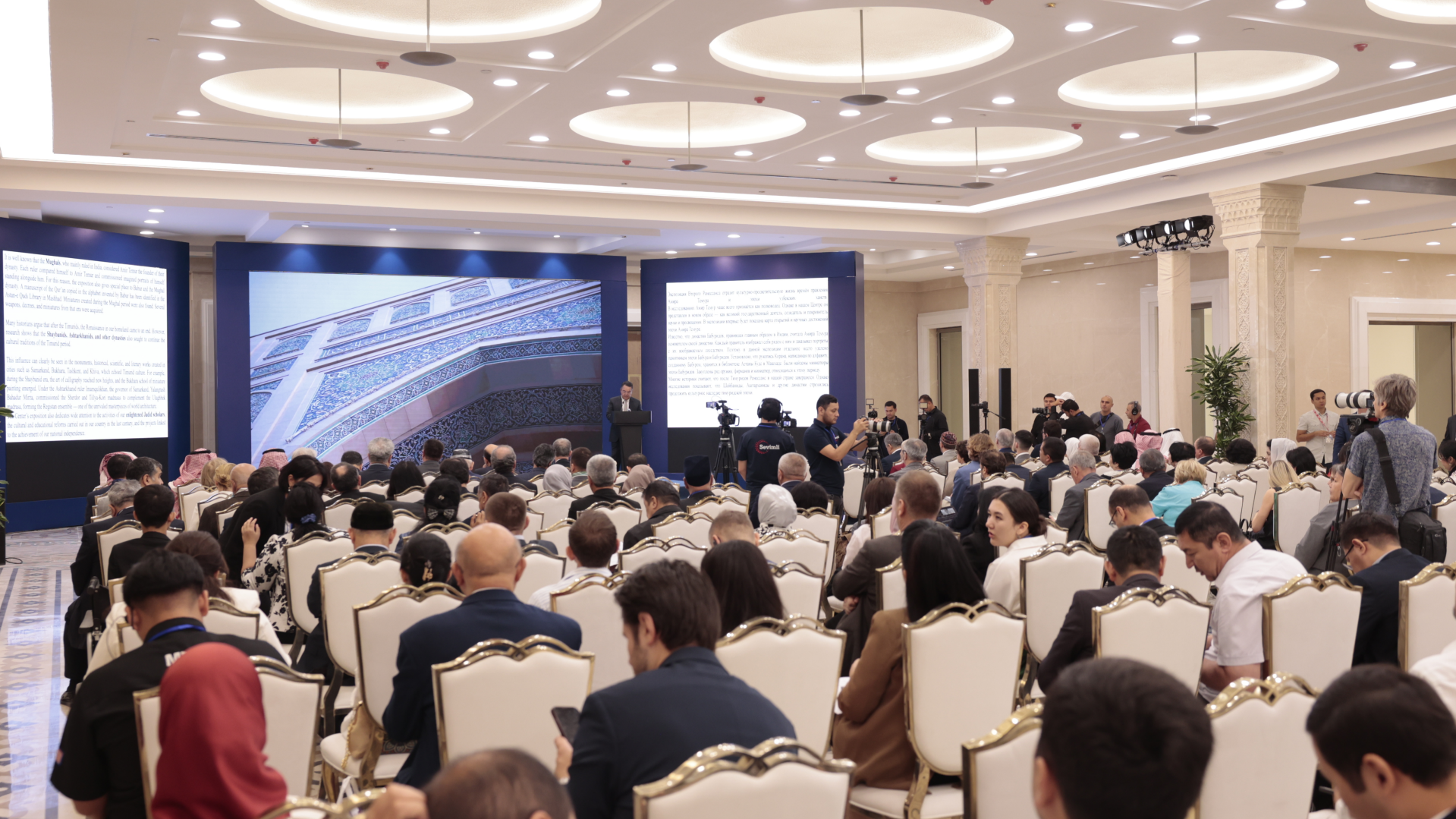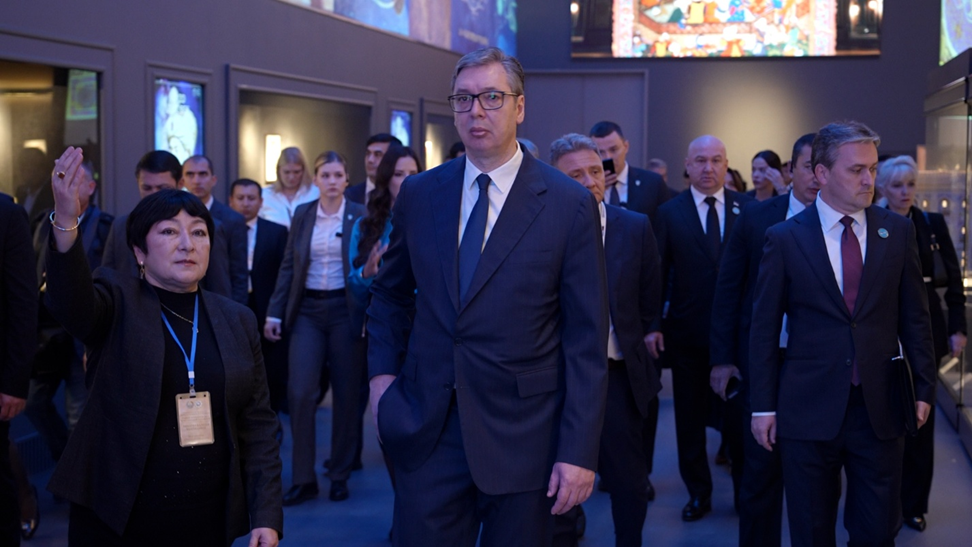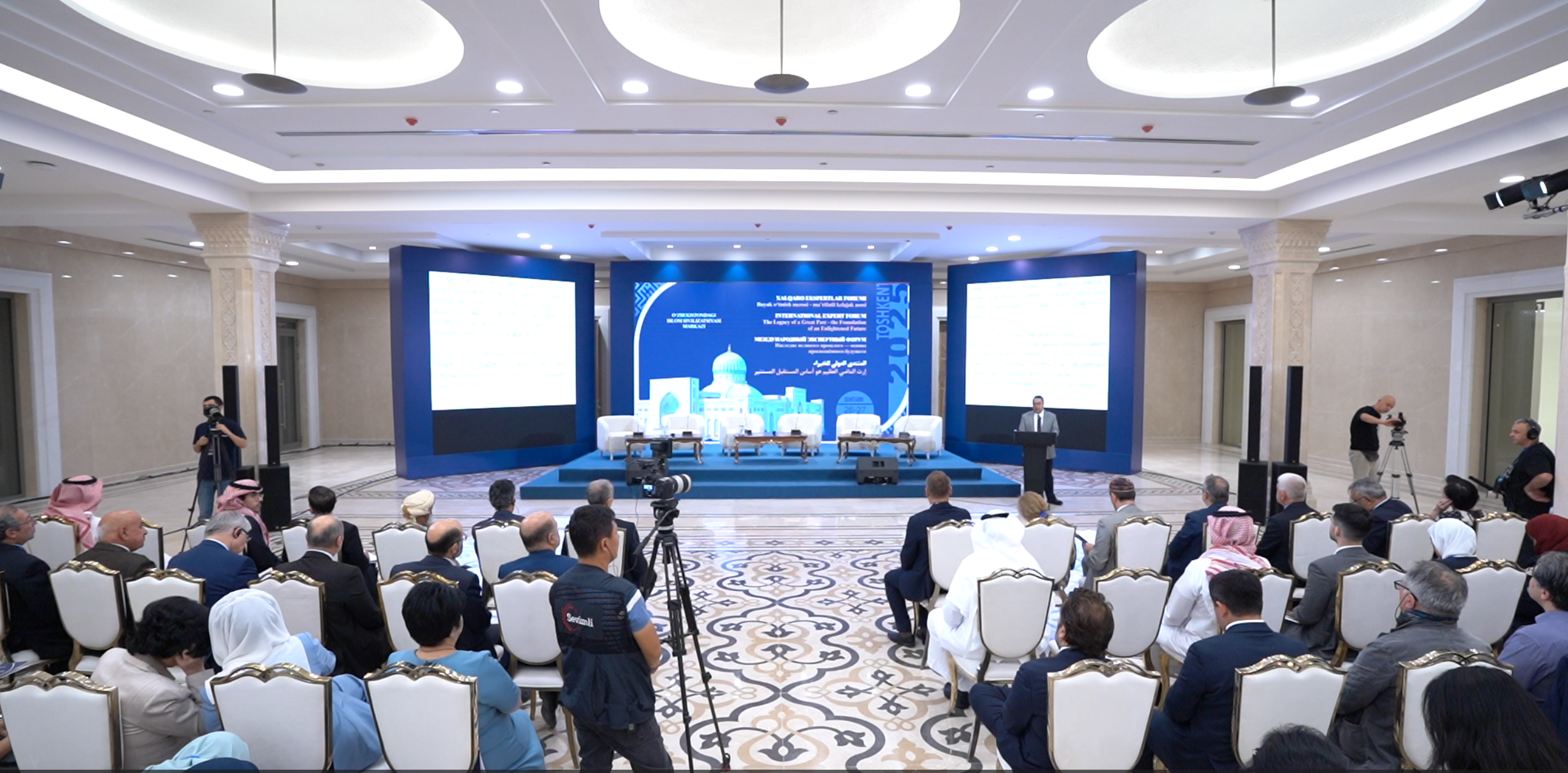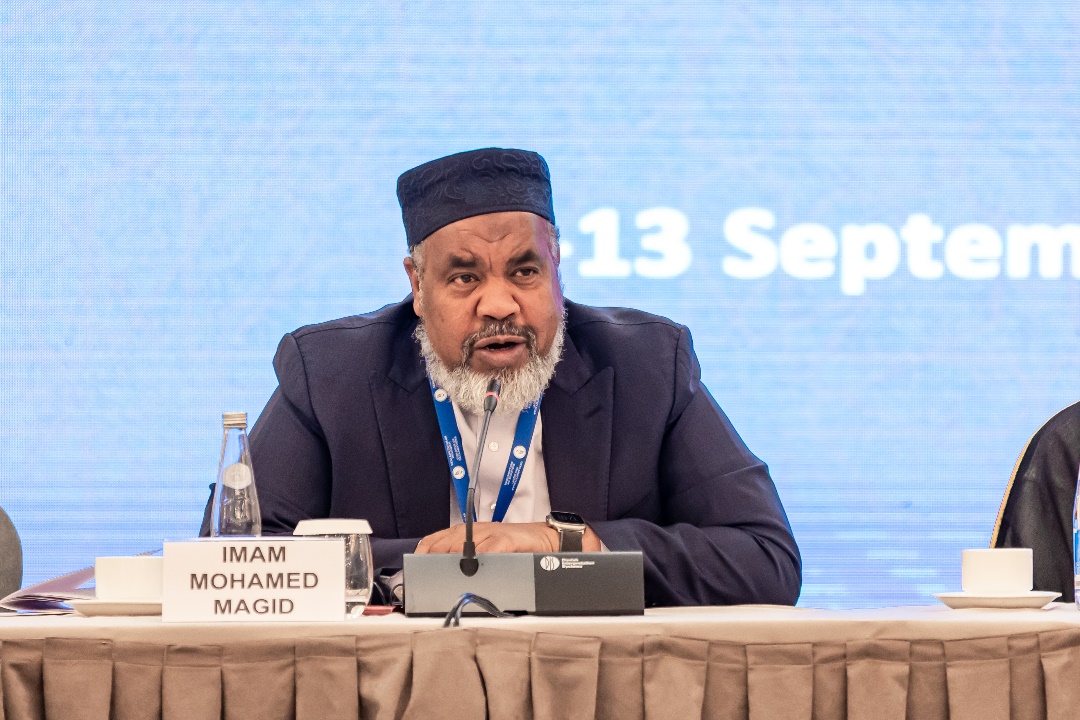Uzbekistan is proposing a model of religious freedom and tolerance
🔴 Representatives of 15 countries in Tashkent: a new stage of interfaith dialogue
🔴 Interfaith dialogue, freedom of conscience, and peace under discussion

Today in Tashkent, nearly 50 leading experts, theologians, politicians, and representatives of international organizations from 15 countries gathered on the first day of the 2nd International “Dialogue of Declarations” Forum to discuss issues of interfaith dialogue, freedom of conscience, and peace.
The forum focused on the following key issues:
◾️ Interfaith dialogue and tolerance
◾️ Ensuring freedom of conscience
◾️ Combating religious discrimination
◾️ Strengthening interfaith trust and ensuring peace and stability in the context of growing geopolitical tensions
At the opening session of the forum, speeches were delivered by Eldor Aripov, Director of the Institute for Strategic and Interregional Studies; Ruslanbek Davletov, Advisor to the President of the Republic of Uzbekistan; Yousef Aldobeay, Assistant Secretary-General for Political Affairs of the OIC; Sodiq Safoyev, First Deputy Chairperson of the Senate of the Oliy Majlis; Chris Seiple, representative of LYNC; Sodiq Toshboev, Chairman of the Committee on Religious Affairs; and Jonathan Henick, U.S. Ambassador to Uzbekistan.
Within the framework of the forum, Turkish journalist and writer Mustafa Akyol highlighted the special significance of the Bukhara Declaration adopted during the first forum held in Bukhara in 2022. According to him, this document enshrines every individual’s right to freedom of thought, conscience, and religion.
Mustafa Akyol, Turkey:
What gives the Bukhara Declaration its particular value is its support for the idea of secularism based on a balance between state institutions and religious organizations. This is a noteworthy approach, as it fosters mutual respect between democratic institutions and religious organizations.

The Chairman of the UAE Fatwa Council, Sheikh Abdullah bin Bayyah, also participated via a congratulatory video message. In his speech, he highly praised Uzbekistan’s role as the host and stressed the importance of various declarations in strengthening interfaith peace and solidarity.
Sheikh Abdullah bin Bayyah, UAE:
For centuries, Uzbekistan has been home to unique centers of science and culture such as Bukhara, Samarkand, and Khiva. In particular, world-renowned scholars like Imam Bukhari, Ibn Sina, and al-Khwarizmi have made invaluable contributions to the development of human thought and the enrichment of world heritage. The United Arab Emirates fully supports the efforts of Uzbekistan’s leadership to promote the values of peace and tolerance.
As the speaker emphasized, respect for religious minorities is a universal principle, and improving interfaith dialogue and ensuring freedom of conscience are shared goals of all nations.
From this perspective, he noted the role of the Forum in uniting the international community in strengthening constructive interfaith cooperation, developing religious education, supporting political dialogue, as well as preventing the isolation of religious groups and averting conflicts.
Uzbekistan – a model of harmony between religions and cultures
According to Imam Muhammad Magid, head of the Muslim Community Center of Dallas County, USA, Uzbekistan is a country with a rich historical heritage and a shining example of peaceful coexistence among different religions. He noted that for centuries, mosques, churches, and synagogues have stood side by side in this land, reflecting a unique atmosphere of tolerance and mutual respect.
Continuing his remarks, the Imam justly emphasized that Uzbekistan deserves to be recognized as a “jewel of Islamic civilization.”
It is precisely on this land that conditions for progress and spiritual development were created, where great theologians and scholars worked and fundamental scientific works were written. The contributions of Imam al-Bukhari, al-Tirmidhi, and other great thinkers hold a special place in this heritage, he said.
In conclusion, Muhammad Magid drew attention to Uzbekistan’s role today as a center for religious tourism. He noted that many American Muslims now travel to the country to visit sacred sites and actively participate in international conferences and scholarly meetings together with Uzbek specialists.
Our discussions as a guide for future generations
Yousef Aldobeay, Assistant Secretary-General of the Organization of Islamic Cooperation (OIC), delivered a speech emphasizing the special importance of this event. According to him, the initiative to hold the forum reflects Uzbekistan’s commitment to strengthening dialogue, mutual respect, and interfaith harmony.
Aldobeay noted that the views of Uzbekistan’s leadership in shaping an open and peaceful environment for the coexistence of different faiths are particularly relevant today, in an era of “religious tolerance erosion.”
Yousef Aldobeay, OIC:
For us, the creation of a common platform for dialogue and exchange of ideas on harmony between religions and cultures, as well as freedom of conscience, has come at exactly the right time. This forum creates a unique opportunity for every voice to be heard.
He stressed that the goals of the forum are fully aligned with the OIC’s action plan for 2025. These include supporting freedom of conscience, developing interfaith harmony through dialogue and cooperation, and putting the adopted declarations into practical implementation.
The OIC Assistant Secretary-General expressed confidence that the discussions in Tashkent would help produce concrete recommendations, create effective monitoring mechanisms, and strengthen international cooperation.
“Our discussions here in Uzbekistan will serve as a guide for future generations, contributing to mutual understanding, cooperation, and peace,” he emphasized.

An Important Document Signed
During the forum, a memorandum of understanding was signed between the Institute for Strategic and Interregional Studies (ISRS) and the American NGO “Love Your Neighbor Community” (LYNC). The document creates a legal framework for future joint work to promote freedom of religion and religious tolerance.
Special attention will be given to cooperation within the framework of implementing the UN General Assembly’s special resolution “Enlightenment and Religious Tolerance,” initiated by the President of Uzbekistan in 2018.
Wade Cusack, Head of LYNC:
Cooperation with ISRS is not just about discussing good ideas, but about developing practical ways to implement those ideas in society. The “Dialogue of Declarations” forum in Tashkent is not just a conversation but a practical step toward applying models from Uzbekistan and other countries to strengthen religious tolerance.
At the forum, Uzbekistan’s experience in religious tolerance and interfaith harmony was given special recognition.
From September 11 to 13, offsite events, seminars, and practical meetings will be held in Samarkand. At the conclusion of the forum, an appeal to the international community is planned to be adopted. It will compile proposals and recommendations on protecting the rights of religious minorities, combating discrimination, and promoting tolerance and peace.
It should be noted that the forum was organized by the Institute for Strategic and Interregional Studies (ISRS) under the President of the Republic of Uzbekistan and the U.S. NGO “LYNC” (“Love Your Neighbor Community”), with the support of the Committee on Religious Affairs, the Center of Islamic Civilization in Uzbekistan, the Ministry of Foreign Affairs, and the Samarkand Regional Administration.
The major conference is attended by nearly 50 leading experts, theologians, and politicians, as well as representatives of international organizations from 15 countries, including high-level delegations from the Organization of Islamic Cooperation, the Muslim World League, and the United States, United Kingdom, China, UAE, and Saudi Arabia.
Center of Islamic Civilization Press service
Most read

Over 100 experts from more than 20 countries of the world are in Tashkent!

President of Serbia Aleksandar Vučić visited the Islamic Civilization Center in Uzbekistan

The Center for Islamic Civilization – a global platform leading towards enlightenment














